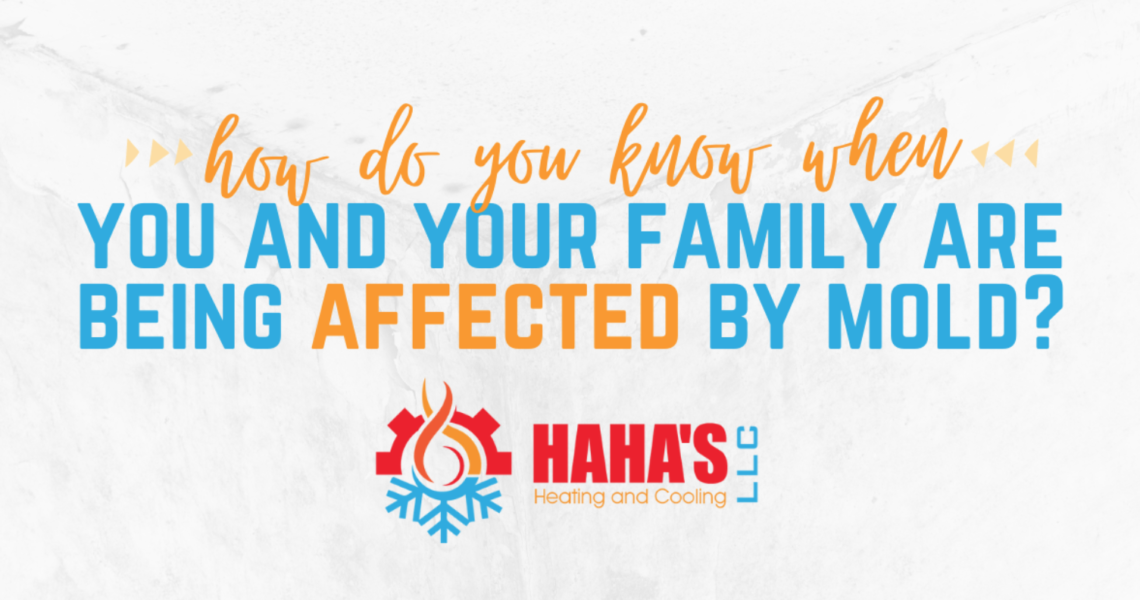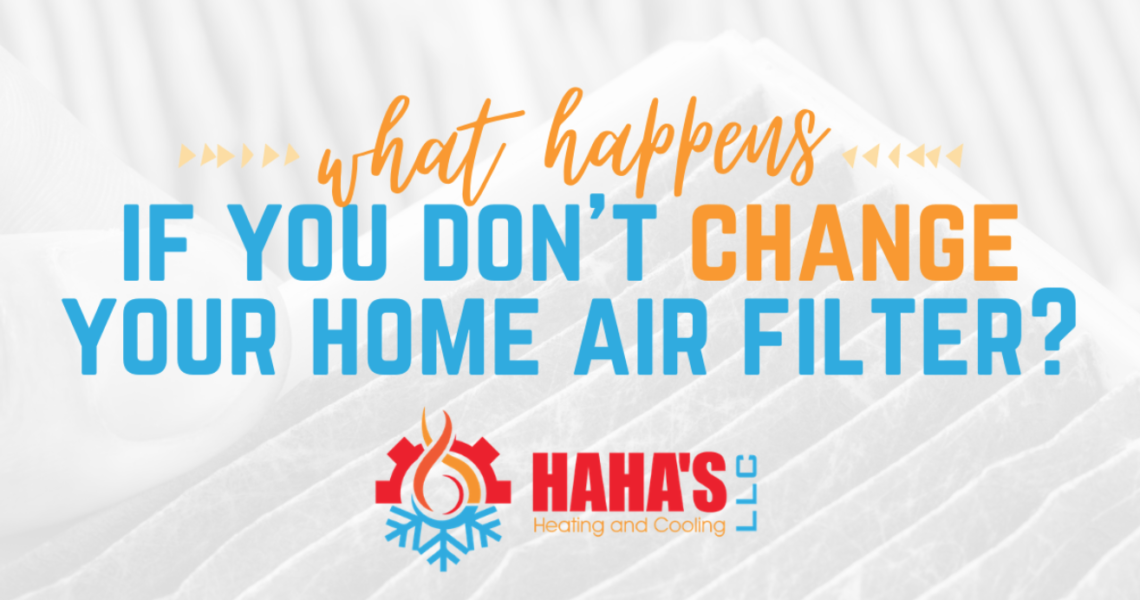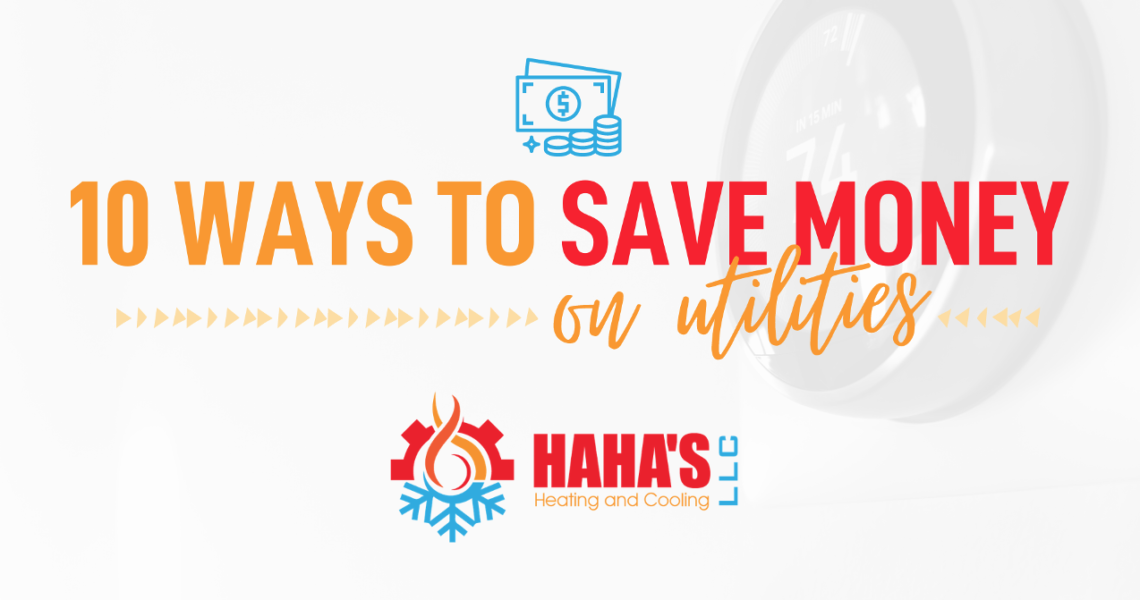How do you know when you and your family are being affected by mold?
Did you know that approximately 28% of the population has genes that make them highly susceptible to mold-related health issues? At a time when we are spending 90% of our days in doors, mold growing behind walls, in ventilation, or in dark damp corners of a home can become a very real concern for families.
To keep your family healthy, we wanted to break down what exactly mold is, the damage it can cause to the body, and how to know if you or a family member might be suffering from its effects.
What happens if you don’t change your home air filter?
Did you know that the air in an office filters through your AC system five to seven times a day? And that number can be even higher in your home! This is why ensuring that your system is giving you the best air quality possible is so important. If your AC system is not thoroughly cleaned out, and your air filters are overdue for a change, your unit can continuously circulate pollen, mold, and germs throughout every room all the time. To keep everyone healthy and avoid turning your HVAC system into a superspreader, it is important to take care of your unit on a regular basis.
Here are a few things that happen when you do not regularly have your unit cleaned out or replace your filters.
Wear and tear
Over time, dust and grime will collect in the ducts and reduce how well the moving parts in your unit function. This means that they will need to be replaced much faster. The average lifespan of an HVAC unit is 15 to 20 years. Without regular maintenance, and consistent air-filter changes, the life of your unit can be shortened by 5 to 10 years. That means that you could potentially have to begin replacing parts (or the entire system) in as few as 5 years.
Higher utility bills
Filters are not designed to work forever. They eventually fill up with the dust and dirt they have captured, and need to be replaced. In this way, they act very similarly to the dryer filters you use to keep lint and dust out of your air.
When you don’t change your filter, it will begin to fail. When this happens it stops being able to filter the air properly, letting dust and contaminants get into your system, and eventually into the rooms the unit is cooling. That dust also jams the AC’s moving parts, such as the motors and valves. Airflow is restricted which creates a strain on the system. When this happens, your system will start to draw more power since it has to work harder in every way, which can lead to utility increases of 15 percent or more.
Additionally, build ups in your system can cause some rooms to be heated or cooled to your desired temperature while other rooms never get to the temperature set on the thermostat. If your rooms are not being equally heated or cooled, it is usually a good idea to reach out to HVAC specialists like Haha’s Heating and Cooling to examine your system.
Moisture and mold
Let’s start with if you have upgraded your system to catch allergens and spores through HEPA, or high energy particulate air filters. These contain a much finer mesh than other filters, so they can keep tiny particles such as allergens, pollen, dander, and mold spores from being circulated. These filters are categorized by MERV ratings of 1 through 20, with the higher ratings indicating that they are more effective at catching small particles.
It is important to note that while HEPA filters can greatly reduce sickness, allergies, and poor air quality indoors, not every system can accommodate the high efficiency filters (especially the MERV 13 filters that are being recommended due to COVID). It is always a good idea to check with an HVAC specialist to make sure that you will not burn out your unit and to create the best possible plan for protecting your family or those in your building from particles that can cause health problems.
Additionally, if you live somewhere with a lot of humidity, or near a high moisture area, not having effective ventilation can spread mold spores and create stagnant air that allows viruses to thrive.
Coils stop working
Your AC unit has evaporative coils which help to remove heat from the air to keep your home cool. With a clogged air filter, the air will not flow over the coils correctly, which means the evaporator coils will likely stop working and this will eventually lead to a total system failure.
Your HVAC system needs regular maintenance in order to continue running effectively. At Haha’s Heating and Cooling, we specialize in servicing your home air unit so it lasts as long as possible. To schedule an appointment for us to take a look at your unit, give us a call at (816) 456-8535.
10 ways to save money on utilities
Summer is approaching. That means sunshine, warm weather, outdoor gatherings and…high utility bills? Unfortunately there are bill add-ons called summer rates which charge a premium for the electricity you use during the summer months. In fact, according to the EPA, an average household in a 1,057 square foot space can spend $2,000 a year on some of their utilities, while those in an average home with 2,301 square feet of space can pay $4,000 a year. When you combine this with rising temperatures, it can often result in skyrocketing bills for both homeowners and renters.
This summer, we at Haha’s Heating & Cooling wanted to help reduce how much people spend on staying cool, so we’re posting our top tips for reducing your utility bills.
Manage your thermostat
If you are keeping your heat or air on full blast while everyone is at work and school, you are basically donating your hard earned paycheck to the utility company. Considering that your central heat and air unit is one of your largest contributors to your monthly bill, think about when you do and do not need it to be on high. By replacing your current thermostat with a smart thermostat, or programming your thermostat to not work as hard while everyone is away, you are cutting down on a significant expense that you aren’t even seeing the benefit of.
In addition to programming your thermostat to work less while you are away at work, consider scheduling it to go down 4-8 degrees at night when you are least likely to notice a difference, and then turn back up 1-2 hours before you wake up.
Finally, with most newer thermostats you can now program them to go down during peak hours. Through these steps you can potentially see a savings of 1% per 8-hour period for each degree you turn your thermostat down according to the U.S. Energy Department. Even better, if you are living somewhere with a moderate spring and fall, consider turning your unit off altogether.
Hot water heater
Did you know that your hot water heater is an energy hog? According to energy.gov heating their water accounts for 14-18% of the total utility bill. One way to drastically reduce this cost is to turn your water heater down from its default 140 degrees, to 120 degrees. You will likely not notice a difference when washing clothes, doing dishes, or anything else that requires hot water…unless you are a fan of boiling hot showers.
Wash cold
Heating up the water your washing machine uses accounts for 90% of the energy it takes to operate a washing machine. Using the cold water setting when doing laundry can significantly reduce how much energy it takes to do laundry.
Unplug when not using
Even when in standby mode, there is a lot of energy being pulled by coffee makers, microwaves, refrigerators, televisions, computers, and anything else plugged into electrical outlets. By keeping these unplugged when not in use, or when you go to work, you can make an impact on your bill.
Use ceiling fans
If you have ceiling fans, definitely try to use them as much as possible. Why? Your air conditioning unit uses about 25% of your household’s energy. A ceiling fan may not bring down the temperature of the room, but by circulating air it can make a room feel significantly cooler. A ceiling fan also takes approximately 1/36th the energy that a central heat and air conditioner uses.
Run appliances late
If you run appliances like dishwashers, washing machines and dryers late in the evening, or before bed, you can save money by pulling energy at the time it is its cheapest. During high peak times energy providers charge a premium for electricity, but that same energy goes on sale later in the day when there is low usage on the network.



